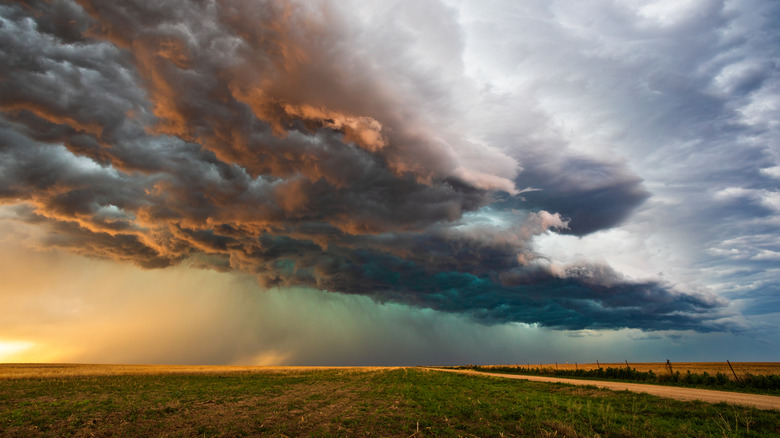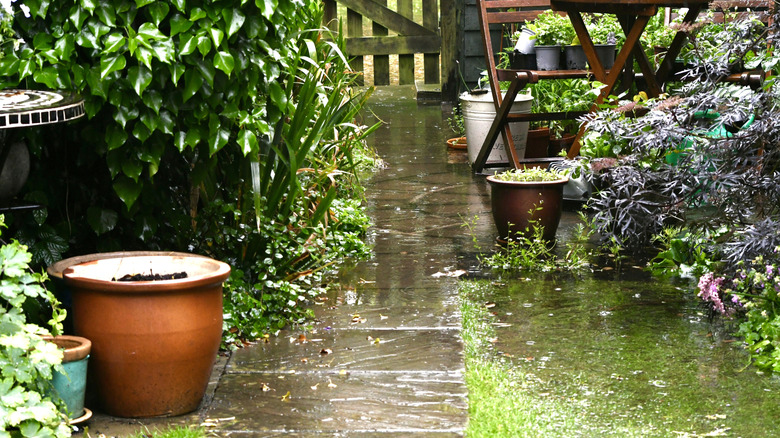What It Means When You Can Smell Rain Before It Happens
Since the dawn of time, we humans have been in constant conflict with the climate, and in our best efforts to gain the upper hand, we've tried all kinds of ways to predict the weather. Consider folk proverbs like "If birds fly low, expect rain and a blow" or those people who say they can feel impending rain in their joints. These sayings may only sound like folklore, but just like how static really does shock you more in winter, there are actual scientific bases for these beliefs: birds fly lower when the air pressure is low, signaling a potential storm, and that same low pressure can cause joint pain. Many farmers claim they can smell rain before it comes, and there is a scientific backing for this as well. In fact, you can make a pretty accurate rain forecast with your nose.
You may have noticed a certain smell in the air that begins shortly before it starts to rain and lingers for a time after the clouds have passed. It's a pleasant, fresh, and earthy smell that can't really be compared to anything else. You might just know it as the smell of rain, but it has an official name: petrichor. The name, coined in 1964 by Australian scientists Isabel Joy Bear and Richard Grenfell Thomas, comes from the Greek words "petros," for stone, and "ichor," the golden blood of the gods. Whether petrichor is actually a useful predictor of rain can be debated, but no matter what, its existence is something worth marveling at.
The cause of petrichor
Petrichor is mainly caused by microbes in the soil called actinobacteria, which play an important role in the decomposition of dead plant material. As they break down this organic material, the actinobacteria excrete an alcoholic compound called geosmin, which the human nose is very sensitive to. One of the effects of rainwater is to speed up the rate at which actinobacteria break down organic matter, causing a sudden boost in decomposition, which in turn fills the air with geosmin. This effect is amplified the dyer the soil is, which is why petrichor is strongest with the first rain after a drought.
The two other main contributors to petrichor are plants and ozone. Many plants release aromatic oils when it rains, contributing to the fresh, vegetal smell of petrichor. The formation of ozone in the atmosphere can also be a factor if there is a thunderstorm. Lightning is so powerful that it can split molecules of oxygen and nitrogen to form nitric oxide and ozone, which has a smell similar to chlorine.
Petrichor can sometimes be set off by the rise in humidity that precedes rain, but unless the soil is very dry, you might have trouble noticing it until the first raindrops actually hit. In other cases, petrichor may be carried in the wind, alerting those downwind of a storm that rain is on the way. Petrichor is almost always a sure sign of rain; it just doesn't give you much of a heads-up.

